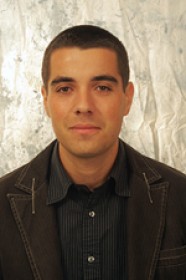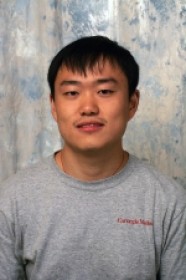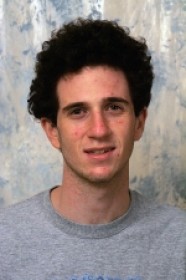Student Talks
Data-Driven Geometric Scene Understanding
Event Location: NSH 1305Abstract: In this thesis, we describe a data-driven approach to leverage repositories of 3D models for scene understanding. Our ability to relate what we see in an image to a large collection of 3D models allows us to transfer information from these models, creating a rich understanding of the scene. We develop [...]
Towards Autonomous Control of Snake Robots
Event Location: NSH 1305Abstract: Snake robots are ideally suited to highly confined environments because their small cross-sections and highly redundant kinematics allow them to enter and move through tight spaces with a high degree of dexterity. Despite these theoretical advantages, snake robots also pose a number of practical challenges that have limited their usefulness in [...]
Shape for Contact
Event Location: NSH 1305Abstract: Given a desired function for an effector, what is its appropriate shape? This thesis addresses the problem of designing the shape of a rigid end effector to perform a given manipulation task. It presents three main contributions: First, it describes the kinematics of an effector as the combination of both its [...]
Theory and Practice of Globally Optimal Deformation Estimation
Event Location: GHC 8102Abstract: Nonrigid deformation modeling and estimation from images is a technically challenging task due to its nonlinear, nonconvex and high-dimensional nature. Traditional optimization procedures often rely on good initializations and give locally optimal solutions. On the other hand, learning-based methods that directly model the relationship between deformed images and their parameters either [...]
Coordination of Multiple Dynamic Programming Policies for Control of Bipedal Walking
Event Location: NSH 3305Abstract: Walking is a core task for humanoid robots. Most existing walking controllers fall into one of two categories. One category plans ahead and walks precisely; they can place the feet in desired locations to avoid obstacles but react poorly to unexpected disturbances. The other category is more reactive; they can respond [...]
Search and Pursuit with Unmanned Aerial Vehicles in Road Networks
Event Location: NSH 1305Abstract: Across many rescue, surveillance, and scientific applications, there exists a broad need to perform wide-area reconnaissance and terrain surveys, for which unmanned aerial vehicles (UAVs) are increasingly popular. This thesis considers the task of using one or more UAVs to locate an object of interest, provide continuous viewing, and rapidly re-acquire [...]
Improving Robot Locomotion Through Learning Methods for Expensive Black-Box Systems
Event Location: NSH 3305Abstract: The modular snake robots in Carnegie Mellon’s Biorobotics lab provide an intriguing platform for research: they have already been shown to excel at a variety of locomotive tasks and have incredible potential for navigating complex terrains, but much of that potential remains untapped. Unfortunately, many techniques commonly used in robotics prove [...]
Spatial, Temporal and Spatio-temporal Correspondence for Computer Vision Problems
Event Location: NSH 1507Abstract: Many computer vision problems, such as object classification, motion estimation or shape registration rely on solving the correspondence problem. Existing algorithms to solve the correspondence problems are usually NP-hard, difficult to approximate and lack mechanism for feature selection. This proposal addresses the correspondence problem in computer vision, and proposes two new [...]
Characteristic Prosody and Meaning in Speech Synthesis
Event Location: NSH 3305Abstract: A new trainable model and method for generating prosody for speech synthesis is proposed, in which a relationship between pragmatics, intonational phonology, and performance is made explicit in a language-neutral manner. The literature of pragmatics and intonation is broad, but produces only coarse descriptions and few actionable models (Steedman; Pierrehumbert and [...]







